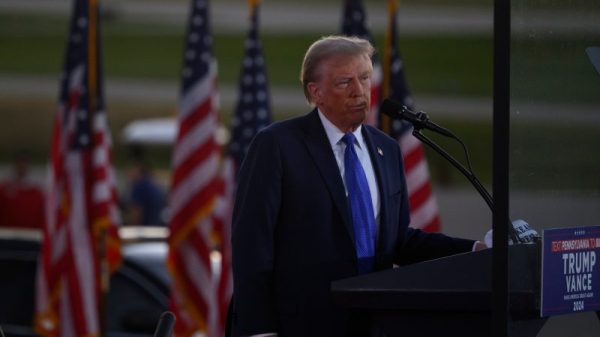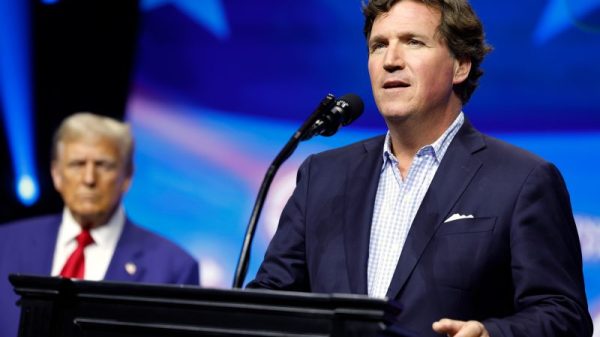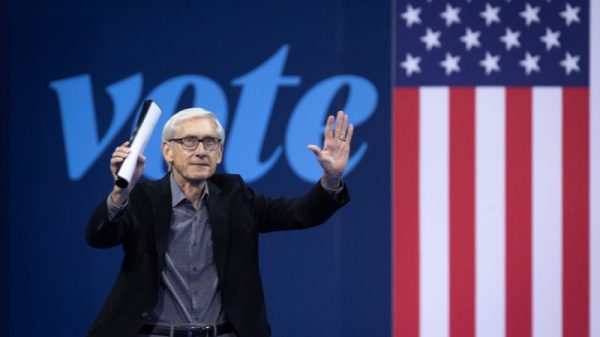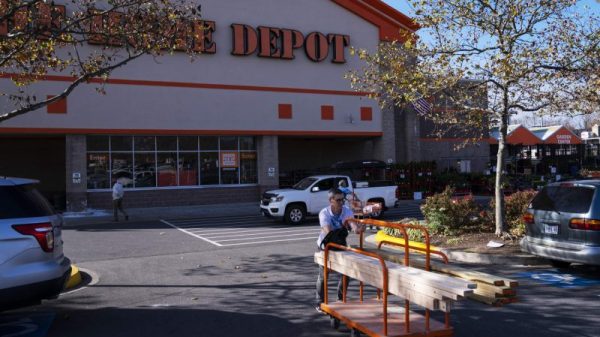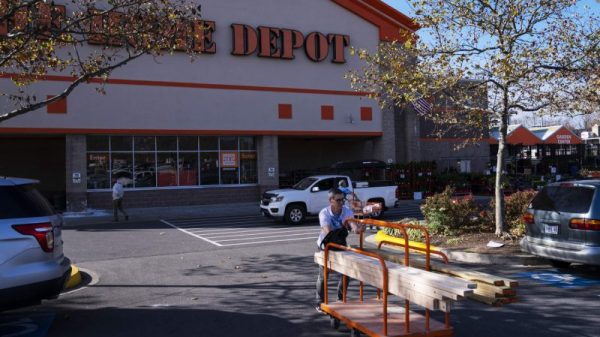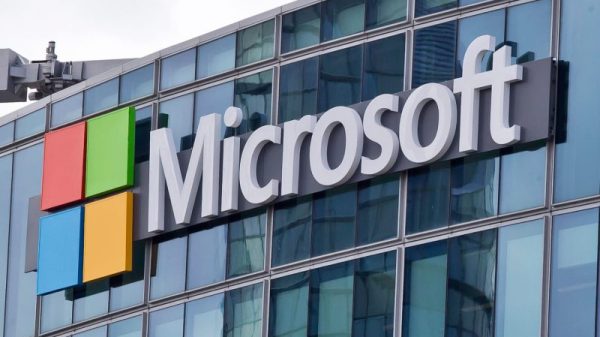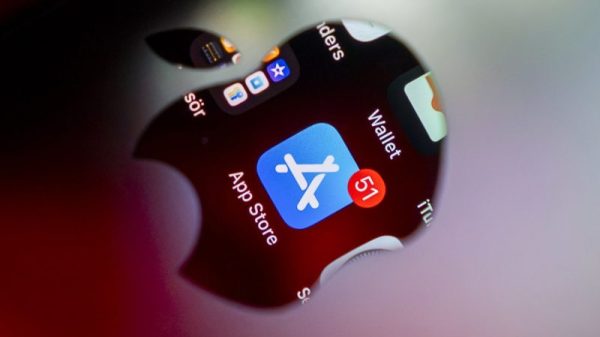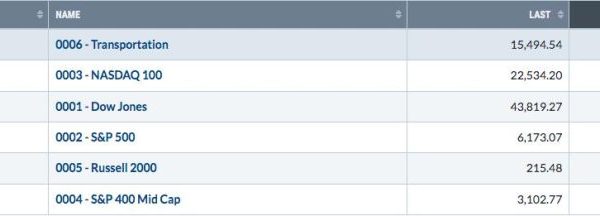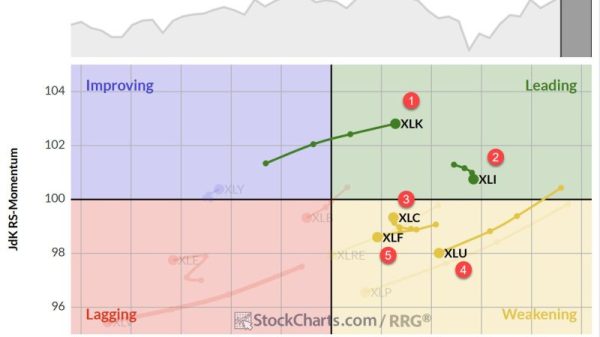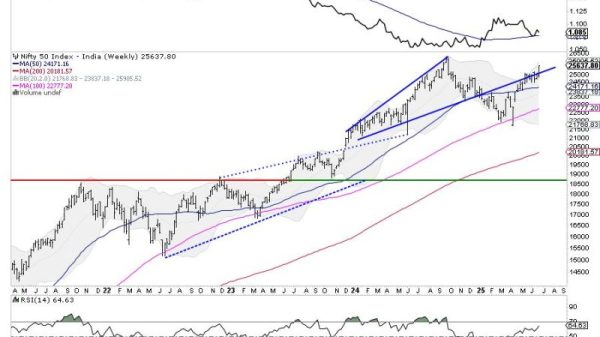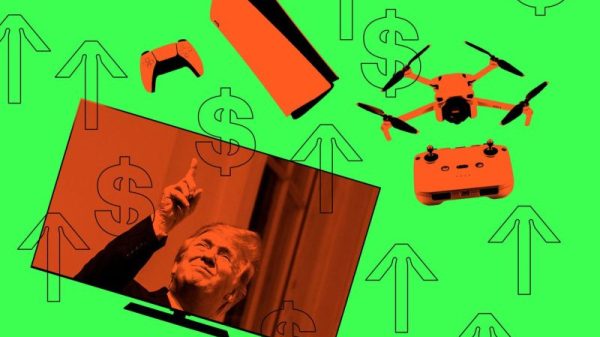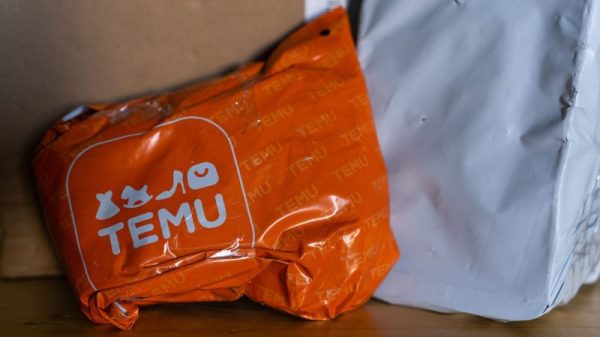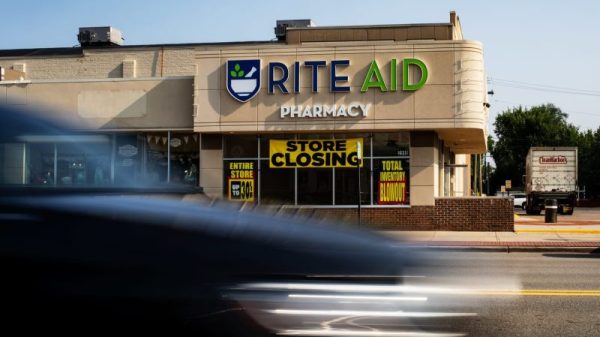Within a day of their $25 billion merger’s falling apart in court, Kroger and Albertsons were each planning to move forward with share repurchases to boost their stock prices and reward investors.
America’s two largest grocery store operators had argued that they’d be better able to lower prices for shoppers by joining forces. Doing so, they said, would boost their negotiating power with suppliers and make it easier to take on much bigger retailers that compete with them in grocery sales, such as Walmart, Costco and Amazon.
The Biden administration disagreed, with the Federal Trade Commission saying in a lawsuit countering the merger that the deal threatened to drive down workers’ wages and bargaining power and reduce industry competition, potentially pushing food prices higher.
With the deal now dead, it’s impossible to know whether any of that would have happened. But U.S. District Judge Adrienne Nelson of Oregon sounded a note of skepticism, writing in her decision Tuesday that the chains’ promises to invest in lower prices were “neither merger-specific nor verifiable, so there is no guarantee” that shoppers would benefit.
“The promise to make a price investment is not legally binding, and the Court must give limited weight to a non-binding promise made during these proceedings,” she said. A Superior Court judge in Seattle agreed with Nelson’s ruling and issued an injunction against the merger Tuesday. On Wednesday, Albertsons terminated the deal and sued Kroger, alleging its erstwhile partner didn’t do enough to secure regulators’ blessing.
The drama unfolded just as the federal government released new inflation data for November showing grocery prices continue to inch higher.
The costs of food eaten at home were 1.6% higher last month than they were the same time last year — a smaller uptick than the 2.7% annual inflation rate overall but accelerating 0.5% from the previous month after a 0.1% rise from September to October. Food prices tend to be volatile, but a broad range of items from produce to poultry notched increases in a wholesale inflation report that came in hotter than expected Thursday.
Kroger on Wednesday reiterated its “commitment to lower prices,” saying it has invested billions in cost reductions over the past two decades. The chain also said it has spent $2.4 billion on pay hikes since 2018 and up to $3.8 billion in annual store improvements. Albertsons similarly promised to stay focused on “improving our value proposition with customers.”
Neither company offered more details about their price-cutting plans, and Albertsons declined to comment further. Kroger said only that it provides value to customers “through competitive pricing, loyalty discounts, personalized offers, fuel rewards and a unique private label portfolio.”
At the same time, both grocery chains said this week that they’d be pouring billions of dollars into moves that will benefit their shareholders.
Kroger said it would repurchase $7.5 billion of its shares after a more than two-year pause, with $5 billion of that to be repurchased in an accelerated fashion — the same sum that Kroger estimated Wednesday it has spent to lowering prices over the past 21 years. Albertsons said it would repurchase $2 billion of its shares and increase the dividend it pays to owners of its stock by 25%.
Stock repurchases — which reduce the number of shares available, driving up the value of those that remain — and dividend payments benefit all investors but especially those with the biggest stakes. Top shareholders typically include large Wall Street firms with the financial firepower to buy and hold millions of shares of publicly traded companies.
Wall Street investment firm Cerberus Capital Management is by far the largest shareholder in Albertsons, followed by the Vanguard Group, which is the country’s largest mutual fund provider, and BlackRock, the world’s largest asset manager, with over $11.5 trillion under its supervision. Vanguard, BlackRock and billionaire investor Warren Buffett’s Berkshire Hathaway conglomerate are the top owners of Kroger shares.
“With both of these companies, there was a lot of hope [put] into the merger — that it was a way of generating growth. Those things aren’t happening now,” said Neil Saunders, managing director of the retail consultancy GlobalData. Repurchasing shares could help inject more “optimistic sentiment” among investors, effectively reassuring them “‘we’ll generate good returns for you,’” he said.
Kroger’s stock has been trading roughly 3% higher since Wednesday, while Albertsons’ had clawed back roughly all its losses following the ruling by late Thursday.
In the meantime, consumer groups and labor advocates are hailing the blocked merger as a victory for shoppers and workers and as a vindication of the Biden administration’s antitrust efforts during its final weeks in office.
The judges in the case “correctly saw the merger as a huge threat to the jobs and benefits of thousands of their members working for those chains and the communities in which they live,” said Seth Harris, a law and policy professor at Northeastern University and a former top labor adviser in the Biden White House.
Thomas Gremillion, director of food policy at the Consumer Federation of America, said, “Combining two of the four largest food retailers would have also reduced consumer choice, leading to fewer alternatives to low-quality, ultra-processed foods.”
“Unfortunately, the Trump administration seems unlikely to build on this important step towards restoring competition in food retail,” Gremillion said, citing President-elect Donald Trump’s selection of Andrew Ferguson to replace Lina Khan atop the FTC. That’s a sign that “Big Food will only be getting bigger over the next four years,” he predicted.
In a September campaign stop at a grocery store in Kittanning, Pennsylvania, Trump slammed the Biden-Harris administration over the costs of everything from eggs and cereal to ground beef. “Bacon is through the roof,” he said.
Trump said Thursday at the New York Stock Exchange that increasing oil and natural gas drilling would help lower inflation, including for food prices, a promise energy analysts have viewed skeptically. But in a Time magazine profile published Thursday, he said of groceries: “It’s hard to bring things down once they’re up. You know, it’s very hard.”
CORRECTION (Dec. 13, 8:40 a.m. ET): A previous version of this article misidentified Kroger’s and Albertsons’ largest shareholders. Cerberus Capital Management, not the Vanguard Group, has the biggest stake in Albertsons; Vanguard, not Cerberus, owns the most shares in Kroger.

